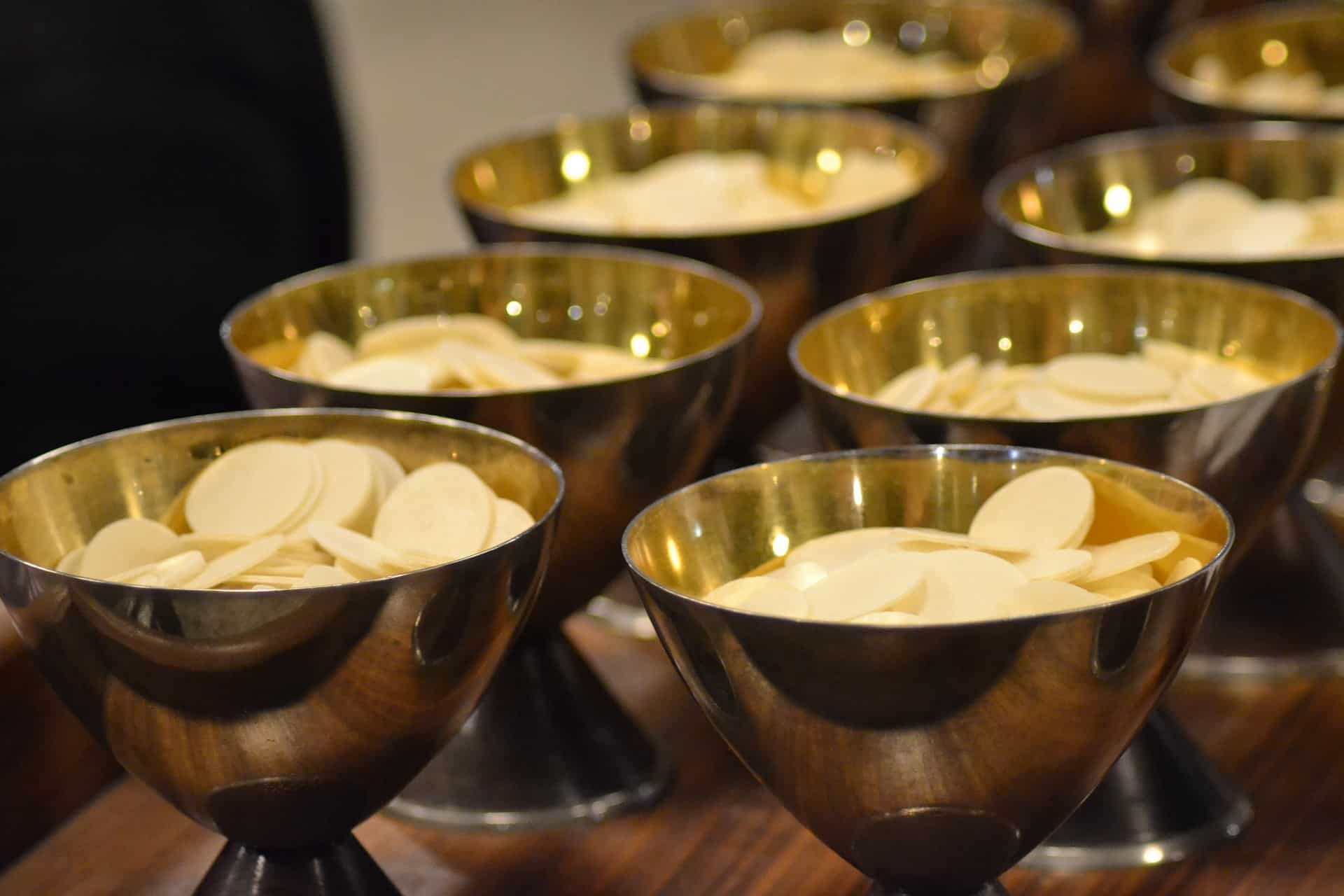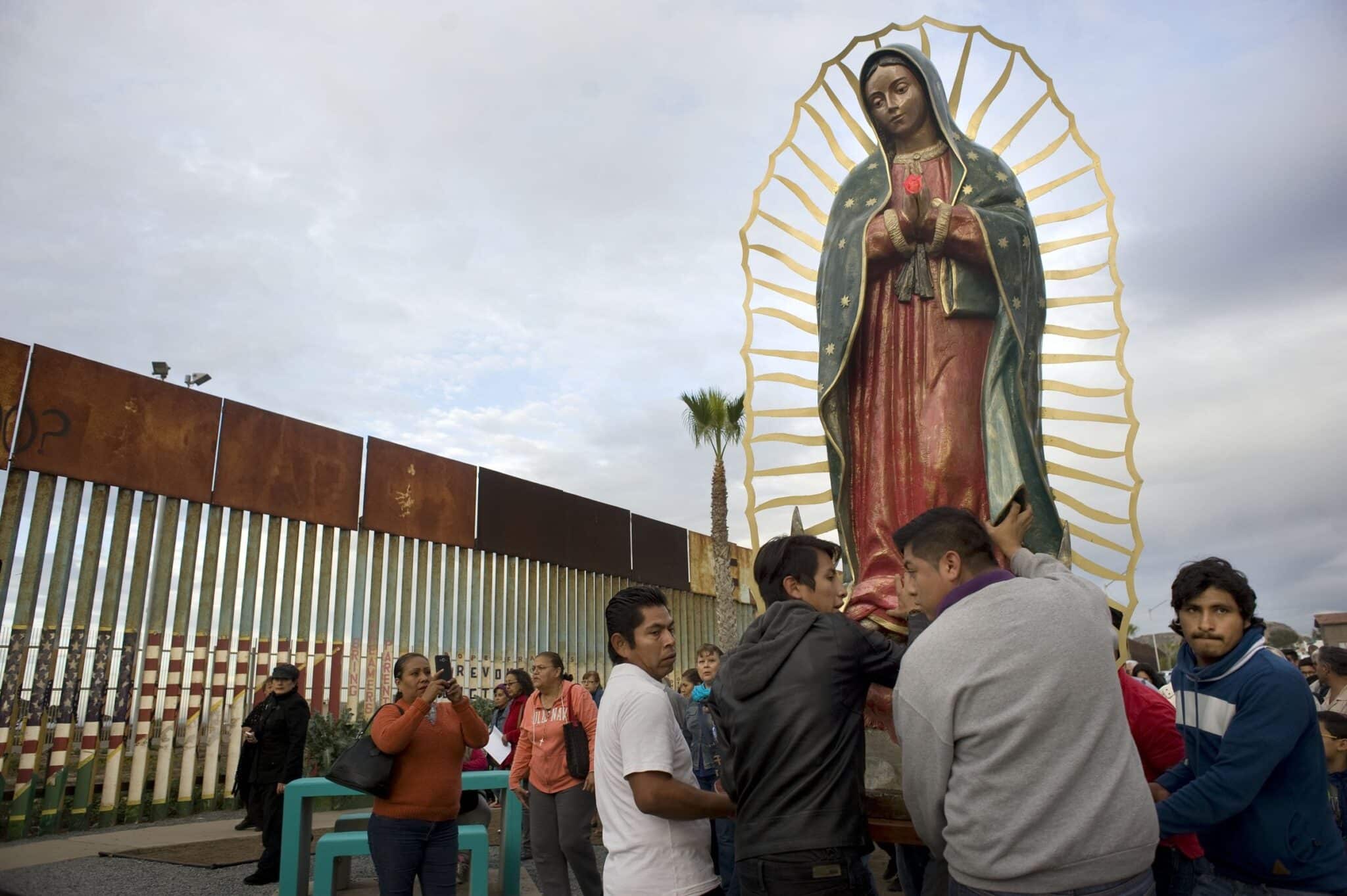In our missalette for the Solemnity of the Epiphany the prayer over the gifts, the bread and wine, speaks of them as symbolizing Christ. But don’t most priests say they are really the body and blood of Jesus Christ? Are they both or is there a difference of opinion?
The teaching of the Church is clear—with the words of consecration, Christ becomes really and truly present among us. The substance of the bread and wine is changed into the substance of Christ’s body and blood. The accidents and appearances of bread and wine remain, however. “There is no change in the perceptible [italics mine] reality of the bread, for example, the reality which we see and touch, and which is the subject of study in physics and chemistry.” The consecrated bread and wine become signs of the supernatural.
Eating and drinking the consecrated bread and wine (the body and blood of Christ) symbolize or sign our unity with Christ. Sharing in the one bread and cup further signs our unity with each other in Christ. God’s gift of the Eucharist is a sign of his care and providence just like the manna in the desert.
So the Church can pray on the Solemnity of Corpus Christi, “You give us your body and blood in the Eucharist as a sign that even now we share your life.”
Or on the Solemnity of the Epiphany we can pray at the prayer over the gifts, “Lord, accept the offerings of your Church [the bread and wine], not gold, frankincense and myrrh, but the sacrifice and food they symbolize, Jesus Christ, who is Lord for ever and ever.”
The bread and wine, offered at the offertory, are signs of Christ who will become present in the gifts and of his sacrifice being recalled and represented to the Father in the eucharistic celebration.








